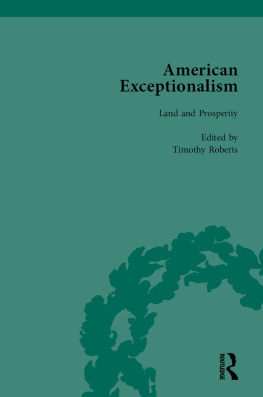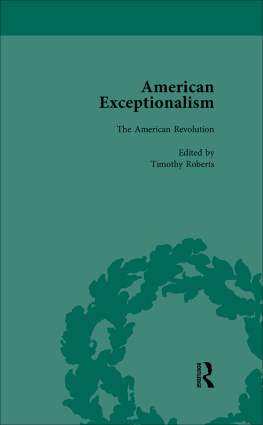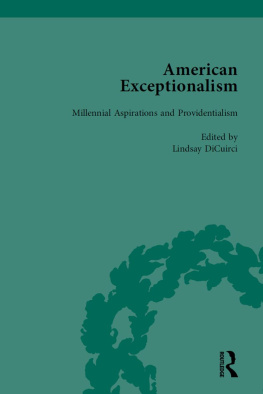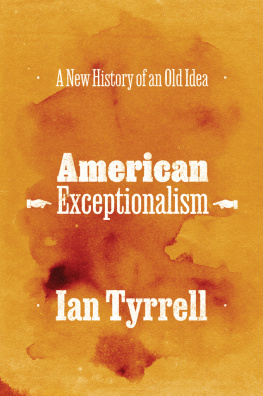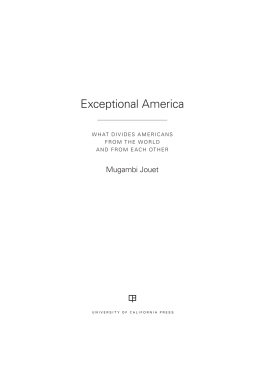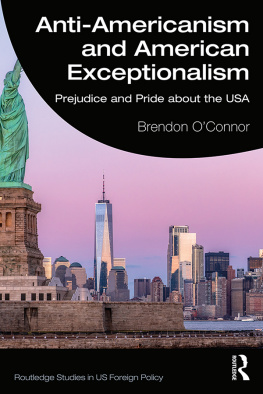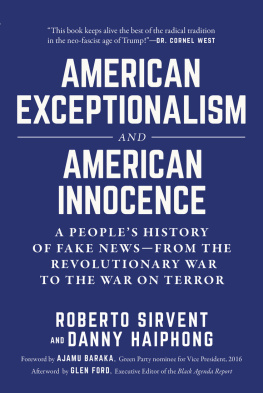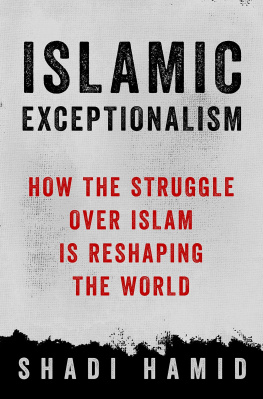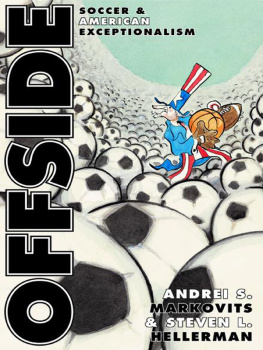AMERICAN EXCEPTIONALISM
CONTENTS OF THE EDITION
VOLUME 1
General Introduction
Land and Prosperity
VOLUME 2
The American Revolution
VOLUME 3
Millennial Aspirations and Providentialism
VOLUME 4
Anti-Exceptionalism
Index
AMERICAN EXCEPTIONALISM
GENERAL EDITORS
Timothy Roberts and Lindsay DiCuirci
Volume 1
Land and Prosperity
Edited by
Timothy Roberts
First published 2013 by Pickering & Chatto (Publishers) Limited
Published 2016 by Routledge
2 Park Square, Milton Park, Abingdon, Oxon OX14 4RN
711 Third Avenue, New York, NY 10017, USA
Routledge is an imprint of the Taylor & Francis Group, an informa business
Copyright Taylor & Francis 2013
Copyright General Introduction Timothy Roberts 2013
Copyright Editorial material Timothy Roberts 2013
To the best of the Publishers knowledge every effort has been made to contact relevant copyright holders and to clear any relevant copyright issues. Any omissions that come to their attention will be remedied in future editions.
All rights reserved, including those of translation into foreign languages. No part of this book may be reprinted or reproduced or utilised in any form or by any electronic, mechanical, or other means, now known or hereafter invented, including photocopying and recording, or in any information storage or retrieval system, without permission in writing from the publishers.
Notice:
Product or corporate names may be trademarks or registered trademarks, and are used only for identification and explanation without intent to infringe.
BRITISH LIBRARY CATALOGUING IN PUBLICATION DATA
American exceptionalism.
1. Exceptionalism United States. 2. National characteristics, American. 3. United States Religion. 4. United States History, Military Sources. 5. Economic development United States History Sources.
I. Roberts, Timothy Mason, 1964 II. DiCuirci, Lindsay.
973-dc23
ISBN-13: 978-1-84893-289-0 (set)
Typeset by Pickering & Chatto (Publishers) Limited
CONTENTS
The editors wish to thank Ruth Ireland, Daire Carr and Stephina Clarke at Pickering & Chatto for their encouragement and support for this project. They also are grateful to two anonymous reviewers of the projects prospectus for their critiques and suggestions. Lindsay DiCuirci also thanks the Interlibrary Loan staff at UMBC for their help in locating sources, Vera Livshin for her valuable research support, and Tim Cassedy and David Rosenbloom for assistance with translations. She is particularly indebted to Larry Marks for the diligence and astuteness that he brought to this project and for thoughtfully engaging each research challenge that arose. Tim Roberts wishes to thank Gordon Hogg of the University of Kentucky Library, Bob Glass of the Centre College Library, and B. J. Gooch of the Transylvania University Library for help identifying the author James S. Allan. He is also grateful to Michael Lowe for his research in locating some of the harder-to-find sources, and Jeremy Murray for transcribing one of the sources at a critical point. Roberts also thanks his family and friends for allowing him to complete the work over the hot summer of 2012.
With the transnational turn in American scholarship in the last few decades, the history of American exceptionalism, or studies about the belief in Americas unique role in human history, has emerged as a popular topic. In attempts to resist and revise an exceptionalist model of American history and literature, scholars have pointed to Americas fundamental interconnectedness with the wider world, from the colonial period to the present. They argue that the globalized economy and culture that define twenty-first-century America likewise defined the early nation, and emphasize the similarities between American political and social conditions and those elsewhere. Critics of nation-state history and American exceptionalist arguments thus have argued that scholarship with a national focus misses Americans historical connections with the world, as studies of colonial settlement patterns, transnational labour activities, environmental phenomena and internationalist organizations among elites, reformers and immigrants all reveal.1
Alongside such recent criticism, however, advocacy of American exceptionalism (if not an emphasis on the positive aspects of that exceptionalism) hardly declined by the early twenty-first century. Recent scholarship has traced the concepts continued shaping of American political culture, economic organization, social and domestic relations, and foreign policy.2 Why has the myth of exceptionalism characterized by a belief in Americas highly distinctive features or unusual trajectory, based on the abundance of its natural resources, its revolutionary origins and its Protestant religious culture that anticipated Gods blessing of the nation held such tremendous staying power, from its influence in popular culture to its critical role in foreign policy?3 This collection of primary source documents seeks to answer this question by reconstructing the roots of exceptionalist mythology across several discourses. Each deployment of the concept of exceptionalism, in discussions ranging from the economic to religious to cultural, reveals a distinct but potent thread in the complex tapestry of exceptionalist rhetoric in the United States.
The concept of American exceptionalism is often traced to its first usage by Alexis de Tocqueville in Democracy in America (1838): The position of the Americans is therefore quite exceptional, and it may be believed that no democratic people will ever be placed in a similar one.4 Actual usage of the word exceptional did not become common, however, until the 1930s, when progressive historians and socialists alike sought to identify components of a distinct American civilization. These observers pondered why the United States, despite its industrialization, had not exhibited a strong class consciousness, much less a broad socialist political movement.5 Yet while the word exceptional has not always appeared in arguments for American exceptionalism, scholars have traced the influence of this concept from the time that Europeans first realized the existence of America as a landmass distinct from Asia and Africa. The concepts staying power was suggested by its consistent invocation in the 2012 presidential election-year debates.6
The notion of American exceptionalism served a rhetorical function long before John Winthrop ascribed biblical meaning to Massachusetts in expressing his vision of the Massachusetts Bay colony as a City upon a hill, perhaps the most famous metaphor in American intellectual and cultural history.7 Typical of the sources focus in Volume 1, the explorer John Smith wrote famously in The Generall Historie of Virginia, New-England, and the Summer Isles in 1624 of Americas abundant natural resources. Similar exceptionalist discourse would serve many functions in populating the British North American colonies. The land, both in its primitive state before Europeans arrival, as it was so characterized, and in its yield for colonists sustenance and commercial trade, was evidence of Gods revealing his plan to new Israelites. America was an exemplary place for all free people to occupy the same social status under the law and to enjoy equal opportunity, notwithstanding the restraints of gender, race and caste by which colonial society denied opportunity for women, Native Americans and unfree labourers. The colonial texts in this collection illustrate that more than a century before the American Revolution, colonists imagined that they were part of a unique venture, whether religious, social or economic.8 Despite the geographic dispersion of disparate communities with unique national roots, ethnicities and religious creeds settling in the New World, they shared in common a sense of this lands exceptionality and the unique purposes to which it might be put. In the British colonies of North America, this unique purpose took the form of a radically new political arrangement.


